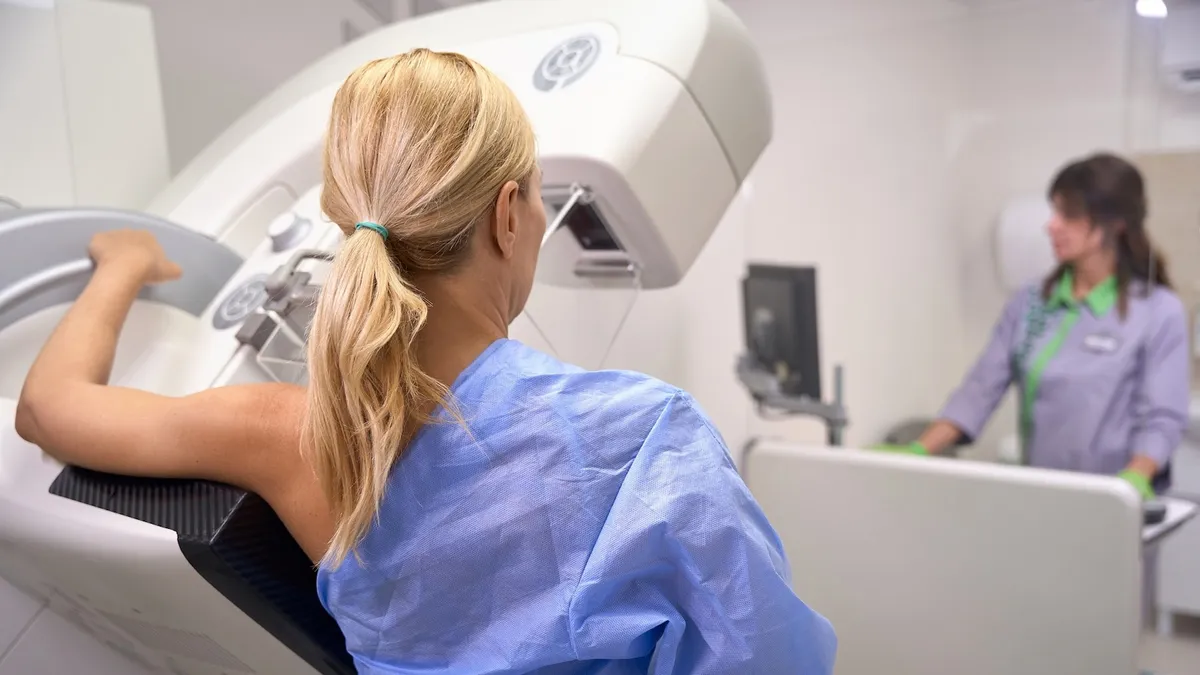
Since the inception of Breast Cancer Awareness initiatives in 1985, the American Cancer Society reports that over 517,000 lives have been saved through enhanced treatment options and proactive screening. Today marks a significant milestone, celebrating forty years of remarkable progress in the fight against cancer. Dr. Shanti Sivendran, the senior vice president of cancer care support at the American Cancer Society and a medical oncologist at Penn Medicine, shared her insights with ABC News on this momentous occasion.
In the 1980s, only one in four women in the United States underwent screening for breast cancer, and access to screening technology was severely limited. Dr. Sivendran highlighted that this landscape began to shift in October 1985 when the American Cancer Society collaborated with various organizations to launch a week-long campaign aimed at raising awareness about breast cancer. The initiative rapidly gained traction, leading to a pivotal moment in 1990 when President George H. W. Bush officially designated October as Breast Cancer Awareness Month.
This initial collaboration has blossomed into a global movement, now celebrated annually by millions who don pink ribbons, participate in walks, and advocate for advancements in breast cancer research and early detection. After four decades of dedicated research, technological advancements, and policy changes, the statistics are promising: two out of three women are now receiving life-saving mammograms that their insurance covers, and there has been a 40% reduction in breast cancer mortality rates due to diligent screening and treatment innovations.
Dr. Sivendran noted that the five-year survival rate for women diagnosed with breast cancer has significantly improved, rising from approximately 75% in the early 1980s to over 90% in recent years. Researchers attribute this increase to advances in screening, which account for about one-quarter of the decline in breast cancer deaths, while improved treatment options contribute to the remaining three-quarters.
Innovations in breast cancer treatments have evolved from less extensive surgeries to more targeted radiation therapies and an influx of new drugs tailored to specific subtypes of breast cancer. Dr. Katherine Crew, a breast medical oncologist and director of the clinical breast cancer prevention program at Columbia University Irving Medical Center, emphasized this progression, noting that between 2000 and 2023, the U.S. Food and Drug Administration approved more than two dozen breast cancer drugs aimed at targeting specific tumor biomarkers. These markers serve as unique identifiers, helping doctors match patients with the most effective treatments, making care increasingly precise and personalized.
Despite these advancements, Dr. Crew pointed out that not everyone has benefited equally from the progress made in breast cancer screening and treatment. There remain significant disparities in breast cancer outcomes, particularly affecting Black women, who experience higher mortality rates compared to their White counterparts. The five-year survival rate for White women with breast cancer is approximately 93%, while it drops to 84% for Black women. In certain cases, Black women face a 50% higher risk of dying from specific types of breast cancer compared to White women.
While multiple factors contribute to these disparities, Dr. Crew stressed the urgent need to address these health inequities in order to ensure that all women have access to the life-saving benefits of advancements in breast cancer care.
Reflecting on the past 40 years of Breast Cancer Awareness, Dr. Sivendran emphasized that while significant strides have been made, the work is far from complete. She urged individuals to take proactive steps in their health journey: “Go out there and take action. Get your screening mammogram, understand your risk, and invest in cancer research,” she encouraged. “Together, we will continue to make advances over the next 40 years.”
As we celebrate the successes of the past four decades, it is essential to maintain momentum and ensure that the progress made in breast cancer awareness and treatment reaches everyone, regardless of background.
Dr. Noor Shaik, MD, PhD, a neurology resident physician and a member of the ABC News Medical Unit, underscores the importance of this ongoing effort to improve breast cancer outcomes for all.